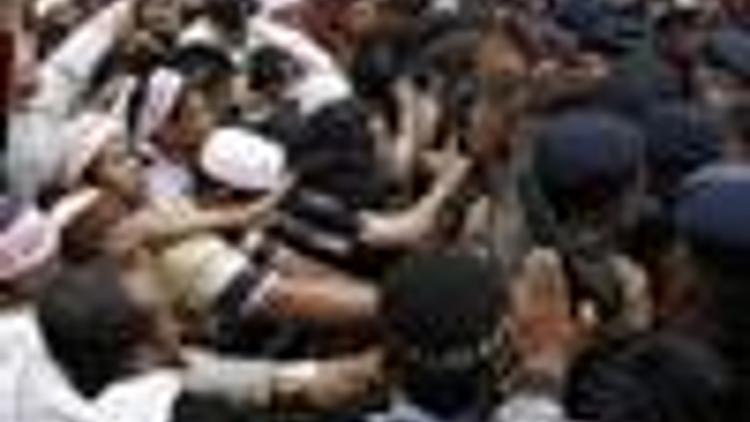Indonesia execution of Bali bombers sparks clashes, tensions high
Güncelleme Tarihi:

Thousands of Indonesians poured onto the streets for the funerals of three militants executed on Sunday for the 2002 Bali bombings, causing some clashes between police and emotional supporters.
The three men from the militant group Jemaah Islamiah -- Imam Samudra, 38, Mukhlas, 48, and Amrozi, 46 -- were executed by firing squad on Nusakambangan island in central Java shortly after midnight, the attorney-general's office said.
The two explosions on
The bombers' bodies were flown from the prison by helicopter to their hometowns -- brothers Mukhlas and Amrozi to Tenggulun in Lamongan, East Java, and Samudra to Serang in
"Looking at this, I feel sad, but then I am also proud that he is a Mujahid (Muslim fighter)," said Nuranda, a woman who came to offer her condolences to Samudra's family.
Tensions ran high as about 3,000 people from west Java cities gathered when Samudra's body, covered in a black shroud with Islamic inscriptions, was carried to a mosque for prayers, with some jostling to touch the body or help carry the bier.
Some shook their fists in the air chanting "Allahu Akbar" (God is great) but others seemed to be just curious spectators.
In Tenggulun, thousands of militant Islamists from groups such as the Islamic Defenders' Front, some wearing white skull caps, had gathered, shadowed by armed police and many reporters.
People chanted "Goodbye Syuhada (heroes)" and "Allahu Akbar" as the bodies of Mukhlas and Amrozi were taken from the mosque to an Islamic boarding school.
Some clashed with police as authorities tried to prevent them from getting too close to the bodies.
Among those in the streets were followers of controversial cleric Abu Bakar Bashir, who was accused of co-founding regional militant group Jemaah Islamiah and jailed for conspiracy over the
"People need to be vigilant and there's a possibility of someone responding to the appeal of the three dead men but I don't think people should believe that there will automatically be some active terrorism," Sidney Jones, a security expert from the Brussels-based International Crisis Group, told Reuters.
Although there have been no major bomb attacks since 2005,
Police searched a hotel in
Jemaah Islamiah said the Bali attacks were intended to deter foreigners as part of a drive to make
About 85 percent of
"We continue to have credible information that terrorists may be planning attacks in
the families of the victims. "Their lives remain shattered. They have been changed fundamentally by that murder," he told reporters.
Although new attacks targeting bars and tourist hangouts were possible, Jemaah Islamiah's network was fractured and sympathy for the bombers was low, said a leading Australian analyst.
"There will be some people in Indonesian society who regard them as martyrs, but they will be a very small proportion," said Damien Kingsbury, an associate professor at
Jemaah Islamiyah's "willingness and capacity to carry out bomb attacks is much reduced," he said.
The Indonesian anti-terrorist unit, Detachment 88, was involved in a series of raids last year that authorities say rounded up the heads of JI and its military wing.
Police are still seeking Noordin Top, a Malaysian considered a main figure behind a series of bombings, including a second set of blasts in Bali in 2005 which killed more than 20 people.
About a hundred Balinese, including some survivors, prayed at a memorial near the first blast site in Kuta.
"Next time the government should be firm in handling the perpetrators of violence," said a survivor, Tumini.
The Balinese widow of a security officer killed in the blasts said she hoped the executions would mark some closure.
"So, let the past be behind us and I hope there will not be any revenge from their families and supporters," said Wayan Rasmi. The body of her husband was never found after the blasts.

